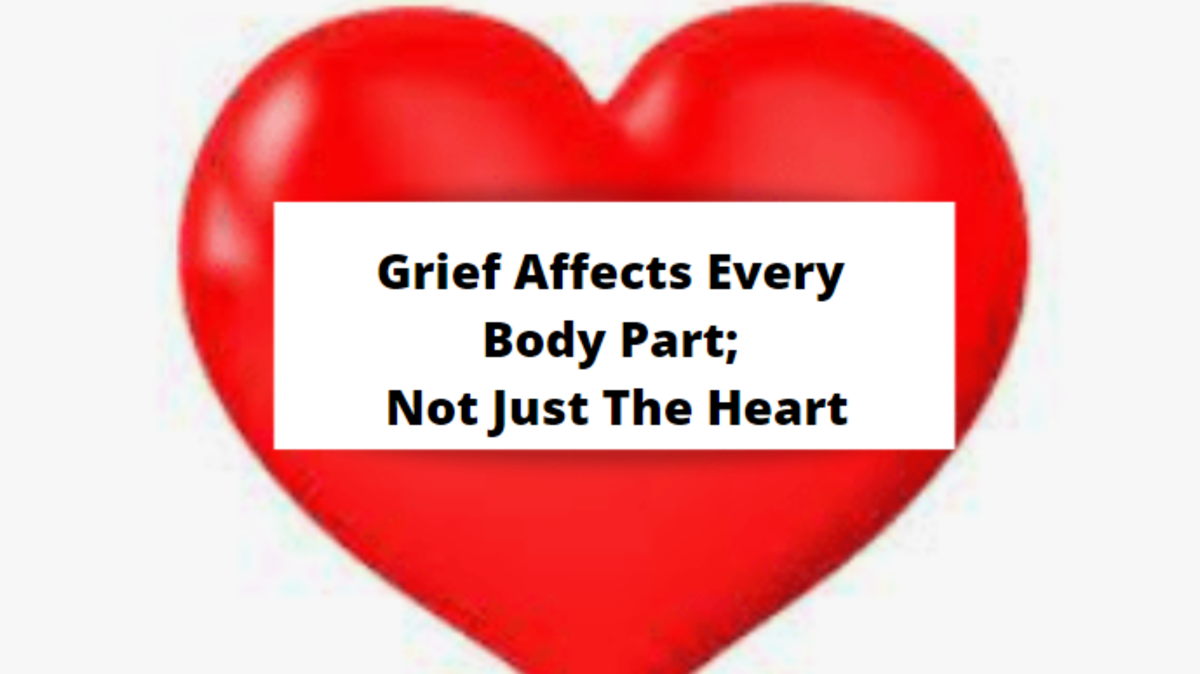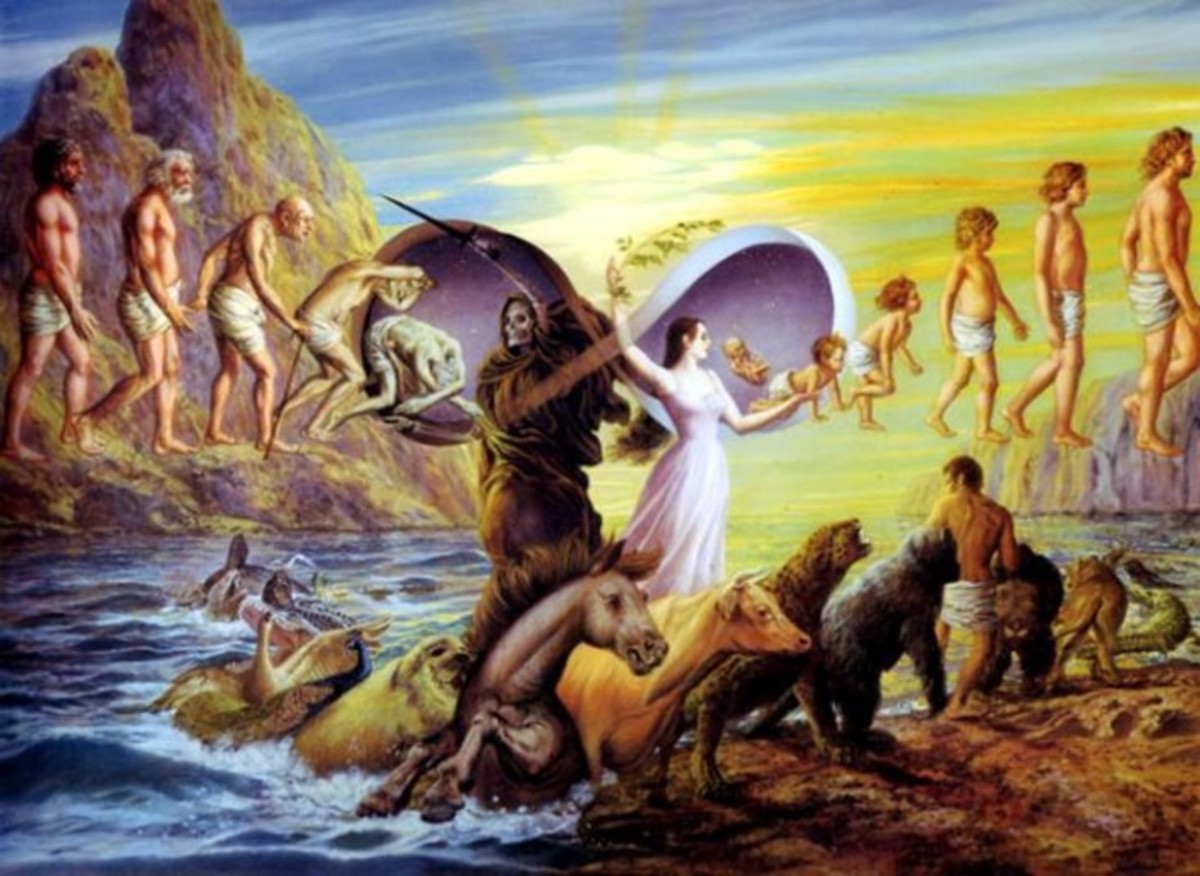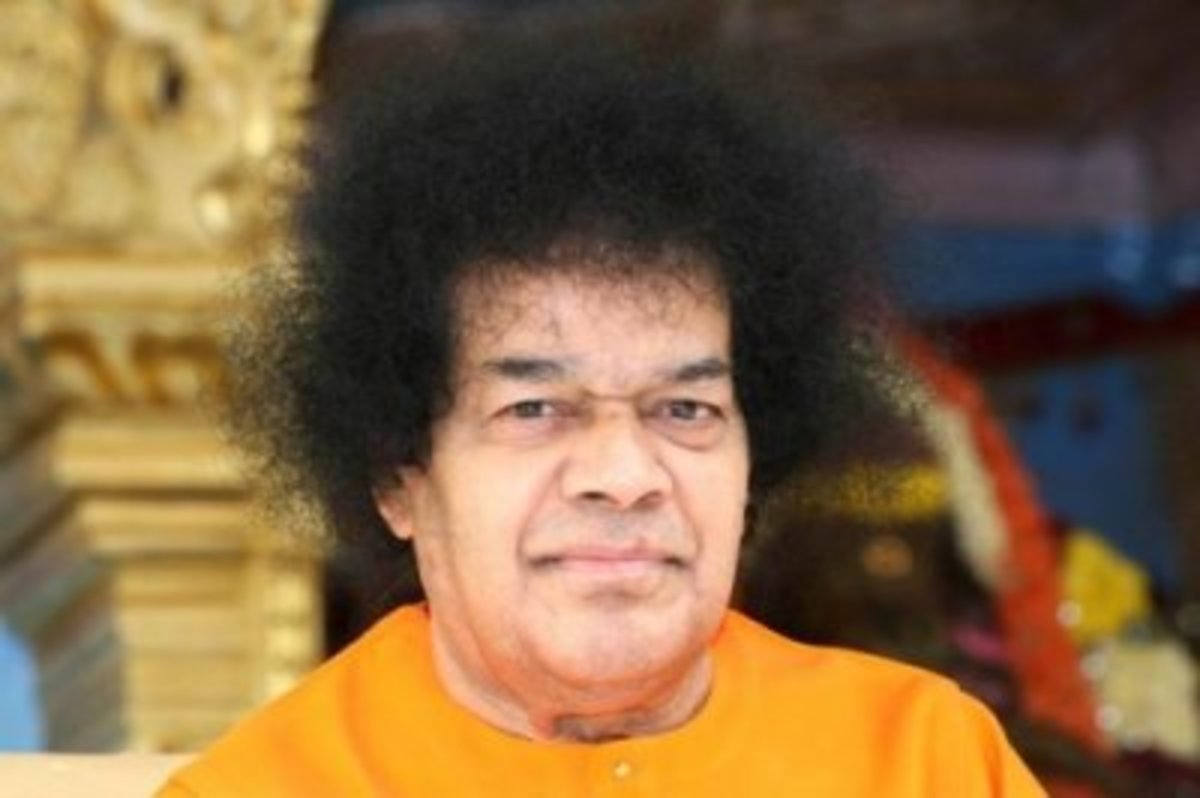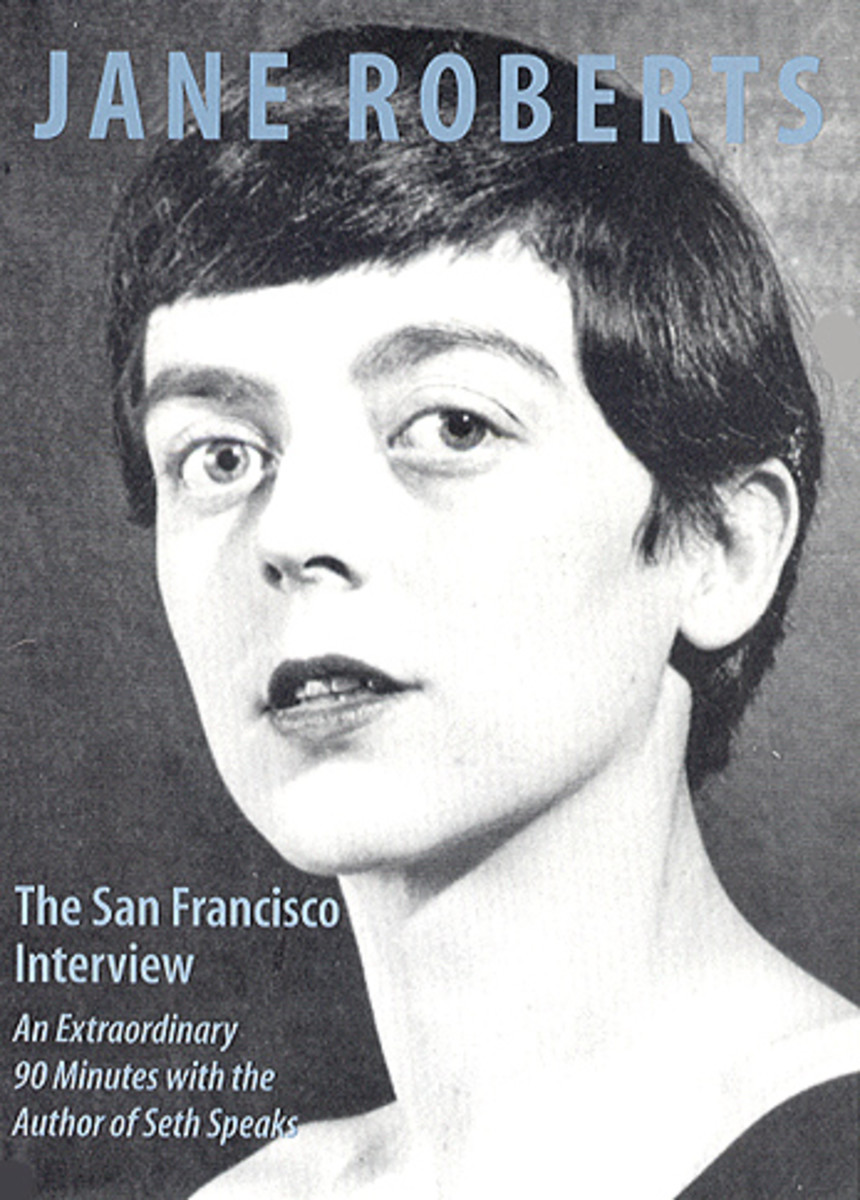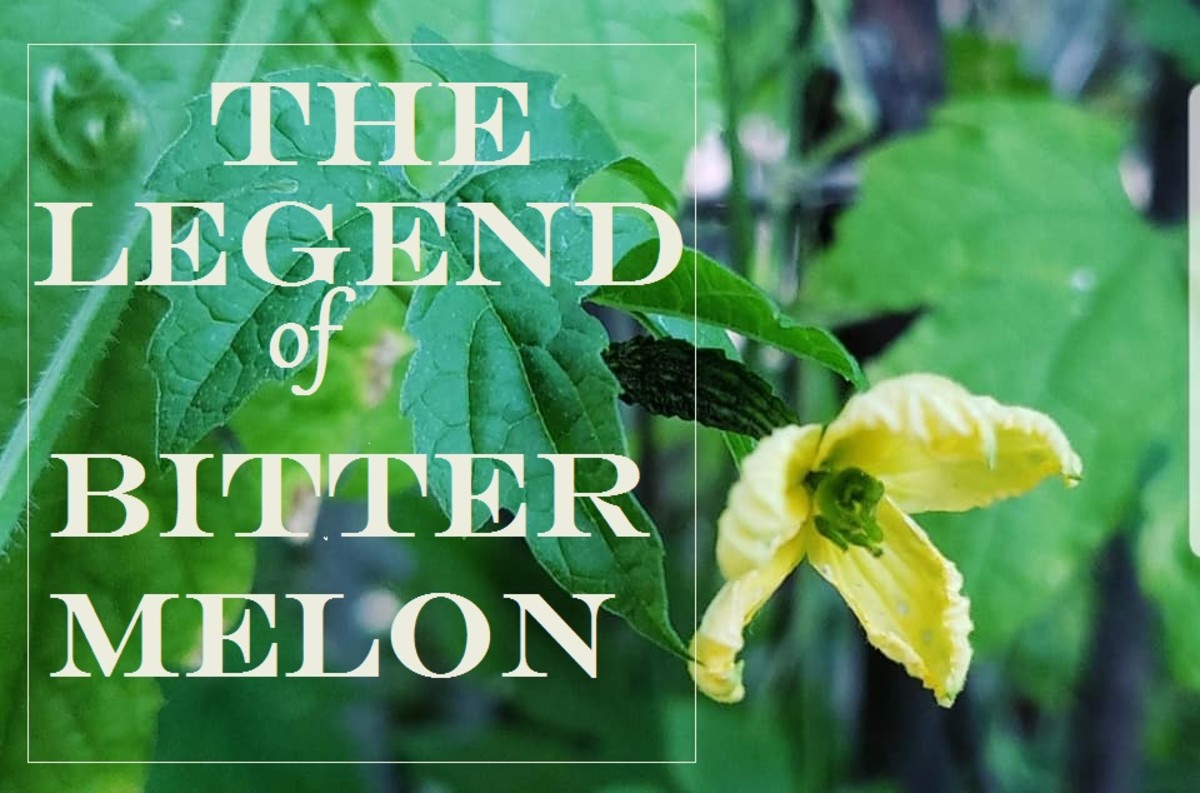Coping With Grief Through Religion & Occult Beliefs
Occult beliefs are a prevalent part of humankind
Occult beliefs are the belief in anything paranormal or supernatural, that are often incompatible with scientific evidence. Much of the research and literature regarding occult beliefs suggests that they are due to inherent flaws in reasoning or some other weakness or glitch in our wiring. However, there is research which suggests that occult beliefs are both functional and a natural conviction that should be embraced. This is especially the case when looking at the role they play in bereavement. Occult beliefs can be successful ways of coping with grief and attaining psychological well-being after being faced with the loss or potential loss of a loved one - or the potential loss of one's own life.
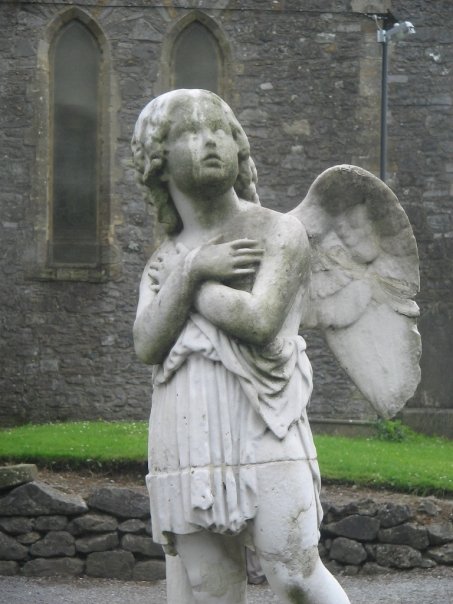
Occult beliefs, specifically "supernatural" or "ghost beliefs", are a part of human nature
When conducting a large-scale, cross-cultural study on grief and mourning, Rosenblatt, Walsh & Jackson (1976) found that 66 of the 67 geographical areas observed held "ghost beliefs". This wide-spread belief in ghosts suggests that the belief is natural and almost universal. In a study done at Oxford University, consisting of thousands of people claiming to have had at least one supernatural experience, the most common triggers for these experiences were found to be depression and despair, illness, prospect of death, death of others, and crises in personal relations (Kwilecki, 2004). Evidently, grief and the demand for coping with loss are driving factors in supernatural experiences. Kwilecki states that these beliefs go way back into the depths of history and have been successful in consoling people universally. The resilience of these beliefs across the globe, even when faced with science that suggests the existence of ghosts or supernatural entities is highly unlikely, shows that they are a part of our nature as human beings. They seem to be built-in coping mechanisms to help people cope with the knowledge and experience of mortality.
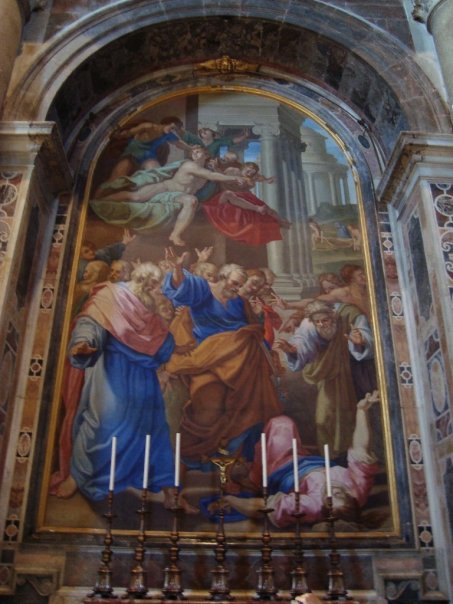
The belief in the supernatural can be seen in its broadest form in religion
Various religions, dating back to the beginning of mankind, deal with the issue of mortality and offer explanations for why we die and what happens after we do. The Rg Veda, which was written in 1500 BCE in India, talks of the dead being joyful and free in another realm located in the heavens (Shushan, 2011). The Bible and The Torah also make mention of heaven and hell, and contain specific references to the afterlife. There are several different religions throughout the world, many of which have a long and successful history, and most of them have a view of the afterlife (Walker, 2000). Considering that religion has consistently been, and continues to be a prominent element in people's lives across the world, it seems likely that the human desire for faith is innate. Given that the belief in the afterlife or the supernatural appears to come naturally to humans, it could be suggested that it is then the most natural means of coping with life's challenges.
Western society portrays occult beliefs negatively
Ouija boards are the most popular board game in the United States (Singer & Benassi, 1981), and they are marketed as exactly that: a game. This is all well and fine, but since the Ouija board is often referred to as staple of occult beliefs, the notion that it is merely a game may make a bit of a mockery of occult beliefs as a whole. It's interesting to note that fifteen of the thirty highest grossing horror films of all time (according to IMDb) are centred around ghosts. This suggests that the public does have an interest in the supernatural, but that the interest is geared towards the entertainment factor. There are much fewer uplifting movies regarding ghosts, so presumably ghosts are mainly used by the media as a concept to shock and scare viewers. The idea that ghosts are entities that will haunt and possess people likely makes it even more difficult for people to admit to believing in them, since media has portrayed them as such an unbelievable and horrific thing. It is true that the very nature of movies is to entertain, and who knows how to accurately represent the supernatural anyway? The danger of initiating the “ghosts equal horror” mindset is that horror movies are most popular among the 13-25 demographic (The Economist, 1999). This demographic is much less likely than an older demographic to have experienced significant loss and the potential search for spirituality. The concept of the supernatural being threatening or frightening may discourage this natural process for them in the future. The overall negativity surrounding supernatural beliefs can be seen quite clearly when looking at how the media and entertainment businesses portray it, and this can be detrimental to someone trying to embrace occult beliefs as a means of coping.
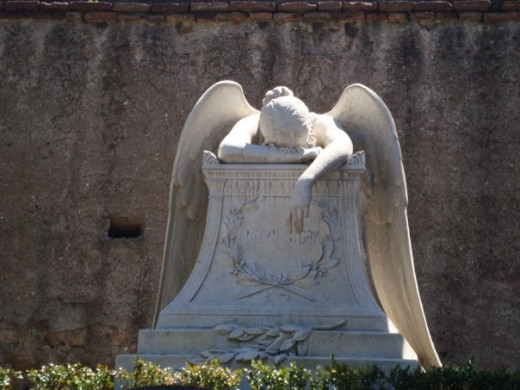
The idea that occult beliefs are nonsensical or irrational can be damaging
When looking specifically at how America receives the idea of ghosts or supernatural experiences, it appears that on the whole, believing in ghosts is viewed as embarrassing or a sign of unintelligence (Rosenblatt et al., 1976). When taking into consideration the previously mentioned wide-spread belief in ghosts, this would suggest that many bereaved people likely feel unable to share their experiences with others, which would simply compound the anxieties associated with their grieving. The negative stigma may also lead people to question their own sanity (Rosenblatt et al., 1976) and thus add even more hardship onto the person trying to overcome a difficult transition. Not surprisingly, when looking again specifically at Americans in regards to coping with grief, it seems as though they have a notably difficult time adjusting to the changes as a result of loss, and experience grief intensely (Rosenblatt et al., 1976). This demonstrates that the denial of ghost cognitions clearly has no positive impact on the grieving process. It may seem to some that allowing oneself to believe in ghosts is just prolonging the grieving process or avoiding appropriate bereavement altogether, though it could be said that the opposite seems to be true. The society with the most negative view of occult beliefs (America) is also the society that appears to have the most difficulty grieving (Rosenblatt, et al., 1976). It is very possible that the mourning process is actually helped along by these occult beliefs. The evidence provided by Rosenblatt, et al. (1976) shows how insinuating that occult beliefs are foolish can actually hinder one's successful and natural bereavement.
Do you believe occult beliefs are a legitimate way of coping with death?
Belief in the paranormal or indefiniteness of death is both low-cost and beneficial
An occult belief has the ability to diminish feelings of anxiety under unpredictable circumstances (Singer & Benassi, 1981). If, for example, someone is faced with a terminal illness and is struggling to come to terms with their impending death, the belief that death is not final and that their spirit will live on in some form is likely to offer them some comfort. This belief is not likely to impact their day-to-day life negatively or take away from anything; this makes it low-cost. The alleviation of discomfort in the face of death makes the belief beneficial. In terms of those who have experienced a loss of a loved one, the belief that they can feel their loved one's presence or even communicate with them after death can provide a similar sense of comfort (Daggett, 2005). As many as 67% of individuals who had experienced a significant loss claimed to experience after-death communications (ADCs) and most of these respondents felt that the ADC experience was a beneficial one. In a study done by Specht, Egloff & Schmukle (2011), it was found that following the death of a spouse, those who had a belief in external controls such as fate, reported lower declines in life satisfaction at a statistically significant level, p < .001. This suggests that the belief in something controlling our fate makes it easier for people to cope after the loss of their significant others. Some may argue that paranormal beliefs do have a cost, literally, as psychics and mediums who claim they can communicate with the deceased charge money and potentially exploit these beliefs for a hefty cost (Richman & Bell, 2012). However, most of the people reaching out to expensive and presumably exploitative psychic hotlines call in regards to relationship problems (Shepherd, 2009). While some people certainly reach out after the death of a loved one, it does not appear to be one of the more common driving factors when looking at people who have "psychic addictions" (Shepherd, 2009). Belief in the supernatural, or external controls, clearly offers benefits when it comes to coping with the loss of a loved one and the costs, in comparison, are relatively small.
A person's occult beliefs should be encouraged by professionals, in a formal setting, as a legitimate way of coping
Several traditional models of grief therapy focus on universal, general themes such as emotional trajectories and the idea that successful grieving requires "letting go" of the deceased (Neimeyer, 1999). These approaches do not really allow for individual circumstances or cultural differences. It's been suggested that as opposed to the previous notion that "letting go" is important, ongoing symbolic bonds with the deceased can actually be healthy. Likewise, embracing a new-found spirituality should be appreciated instead of written off as a knee-jerk reaction to the trauma (Neimeyer, 1999). Traditional models focus on getting someone from point A (grief) to point B (acceptance) through a series of behaviour therapies formatted around one type of grief; the room for healing through spirituality in these models is sparse. It is important to note that people may respond more favourably to 'spiritual healing' through their occult beliefs than behavioural therapies, especially since everyone grieves differently. Each professional should enter grief therapy without knowing ahead of time what steps will be taken (Neimeyer, 1999). This is to say that if someone enters the appointment with the belief that they are experiencing ghost cognitions, the professional would then construct a plan that accommodates and builds upon that as opposed to discouraging the belief and urging them to grieve in a linear, pre-constructed way. Asking about the patient's spiritual beliefs may validate its importance and potential as a coping resource (Northcut, 2000). Research suggests that finding a physician who is spiritually attuned to them is important to 70% of adults, and up to 94% would like for their physicians to address spiritual issues with them (Wachholtz & Pearce, 2009). This would suggest that for a great deal of people, spirituality plays an important role even in professional relationships, especially those concerning health, be it physical or mental. One might argue that since everyone, including the professional providing grief therapy, has their own potentially strong views regarding spirituality and afterlife, it might be a subject better left untouched. It is possible that the therapist's biases could come out in the form of professional advice, intentionally or not, especially if they passionately agree or disagree with what their patient is presenting to them (Northcut, 2000). However, personal biases could expose themselves in numerous situations outside of spirituality. The professional should have been trained to be able to acknowledge their biases and proceed to provide objective therapy (Northcut, 2000); failure to do so would not be related to the subject at hand, rather to the therapist's failure to follow through with their professional responsibilities.
Belief in the supernatural can improve the quality of life for those facing terminal illness
Research has shown that those facing life-threatening illness who also possess 'transcendence' (the belief in something greater than the self) have a decreased fear of death, discomfort, and loneliness; as well as increased emotional adjustment and positive death perspective (Coward, 1996). This suggests that those who believe there is something beyond their life on earth, regardless of what it may be, have a notably easier time coping with their illness. Given that those facing terminal illness are aware that their death is near, it goes without saying that the quality of their remaining life becomes very important. They commonly develop new, attainable goals, which then lead to more positivity and hope (Gum & Snyder, 2002). If a person is uncomfortable, focusing on their fear of death, and feeling alone, it seems very probable that they will be less likely to succeed in their goals as they will be pre-occupied and less motivated. It could be argued that putting time and investing emotion into occult beliefs also takes away from these beneficial revised goals. However, there are obvious benefits coming from them which in turn allow the person to spend less time worrying about death and more time focusing on the positive aspects of the life they have left. The terminally ill patient's attitudes about their own death would presumably also affect how their loved ones will grieve them; someone who passes away at peace with their passing may be easier to grieve than someone who feared death and felt that their life was unresolved. Overall, the belief in the supernatural improves the quality of life for those facing death, as well as aids in the grieving process for those who have lost someone close to them.
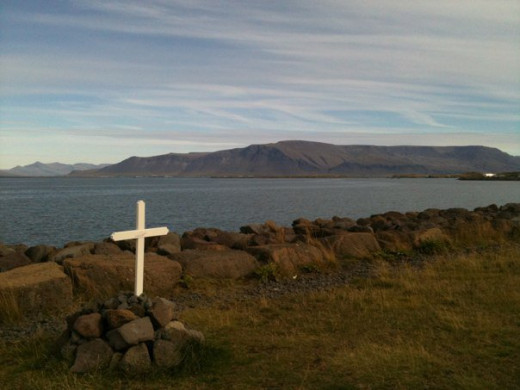
Occult beliefs are not necessary for successful grieving, they are just a potentially helpful coping mechanism for some
Traditional models, such as cognitive behavioural therapy, have been shown to be quite successful for those experiencing traumatic grief (Cohen & Mannarino, 2011). Young children respond better to basic information and concrete details and thus children would not likely benefit as greatly from the belief in the supernatural as adults might (Heath, Leavy, Hansen, Ryan, Lawrence & Sonntag, 2008). Occult beliefs would then probably be best left on the shelf and revisited later when their concept of death and maturity has evolved. Accepting occult beliefs as a viable form of coping does not mean that it has to be introduced as a method in every circumstance, or even introduced at all. Most of the benefits occult beliefs can offer in grieving seem to come from those who seek it as a natural part of the process, and most of the damage seems to come from those very people feeling that it not is a legitimate road to recovery (Rosenblatt et al, 1976). Some may say that is a person's right to believe that occult beliefs are nonsense, just as it is someone's right to believe in the occult, and this is true. The change needs to occur in the notion that occult beliefs are a character flaw. There needs to be an acceptance that even though someone may not hold occult beliefs themselves, they can serve a positive function for someone else. It does not have to be 'all or nothing' in the sense that occult beliefs either contribute to the grieving process universally or they do not, it can and should be on an individual basis.
To sum up...
Occult beliefs may be considered irrational or beyond the realm of scientific proof. This does not, however, make them insignificant. Science may not provide any evidence for the existence of ghosts or supernatural entities, but it does provide evidence to suggest that these beliefs can be beneficial. The research discussed has shown that these beliefs can provide comfort and healing for people in various situations. The grieving process can be aided, a person can come to terms with illness, and anxieties can be alleviated. There does not need to be a rift between science and occult beliefs, rather, occult beliefs can be used alongside science in grief therapy to achieve optimal, personalized coping strategies (Neimeyer, 1999). More research should be done exploring the benefits of occult beliefs to make people feel more comfortable with embracing them. Change in how occult beliefs are viewed does not have to involve encouraging everyone to believe in the supernatural or to push blind faith in something. Science may not support the beliefs themselves, but it does support positive effects of holding said beliefs.
References
Cohen, J. & Mannarino, A.P. (2011). Trauma-Focused CBT for Traumatic Grief in Military Children. Journal of Contemporary Psychotherapy, 41(4), 219-227.
Coward, D. (1996). Self-Transcendence and Correlates in a Healthy Population. Nursing Research, 45(2), 116.
Daggett, Luann M. (2005). Continued Encounters: The Experience of After-Death Communication. Journal of Holistic Nursing, 23(2), 191-207.
Fishman, Y.I. (2009). Can Science Test Supernatural Worldviews? Science and Education, 18(6), 813.
Gum, A. & Snyder, C.R. (2002). Coping with Terminal Illness: The Role of Hopeful Thinking. Journal of Palliative Medicine, 5(6), 883-894.
Heath, M.A., Leavy, D., Hansen, K., Ryan, K., Lawrence, L., Sonntag, A.G. (2008). Coping With Grief: Guidelines and Resources for Assisting Children. Intervention in School and Clinic, 43(5), 259-269.
Kwilecki, Susan. (2004). Religion and Coping: A Contribution from Religious Studies. Journal for the Scientific Study of Religion, 43(4), 477-489.
Neimeyer, Robert A. (1999). Narrative Strategies in Grief Therapy. Journal of Constructivist Psychology, 12(1), 65-85.
Prigerson, Holly G., Maciejewski, Paul K., Reynolds, Charles F., Bierhals, Andrew J., Newsom, Jason T., Fasiczka, Amy, Frank, Ellen, Doman, Jack, Miller, Mark. (1995). Inventory of complicated grief: A scale to measure maladaptive symptoms of loss. Psychiatry Research, 59(1-2), 65-79.
Northcut, Terry. (2000). Constructing a Place for Religion and Spirituality in Psychodynamic Practice. Clinical Social Work Journal, 28(2), 155-169.
Richman, Harvey, Bell, Courtney. (2012). Paranormal Beliefs Then And Now. North American Journal of Psychology, 14(1), 197-206.
Rosenblatt, Paul C., Walsh, R. Patricia, Jackson, Douglas A. (1976). Grief and mourning in cross-cultural perspective.New Haven: HRAF Press.
Rosner, R., Pfoh, G. & Kotoucova, M. (2011). Treatment of Complicated Grief.
Shepherd, R.M. (2009). Dangerous consumptions beyond the grave: Psychic hotline addiction for the lonely hearts and grieving souls. Addiction Research and Theory, 17(3), 278-290.
Shushan, Gregory. (2011). Afterlife Conceptions in the Vedas. Religion Compass, 5(6), 202-213.
Singer, B., & Benassi, V. A. (1981). Occult beliefs. American Scientist, 69(1), 49-55.
Specht, Jule, Egloff, Boris, Schmukle, Stefan C. (2011). The Benefits of Believing in Chance or Fate: External Locus of Control as a Protective Factor for Coping With the Death of a Spouse. Social Psychological and Personality Science, 2(2), 132-137.
Wachholtz, Amy B, Pearce, Michelle J. (2009). Does Spirituality as a Coping Mechanism Help or Hinder Coping With Chronic Pain?. Current Pain and Headache Reports, 13(2), 127- 132.


